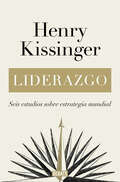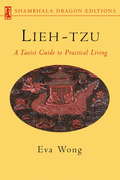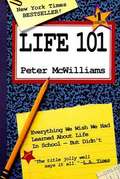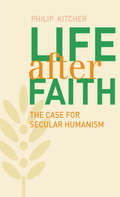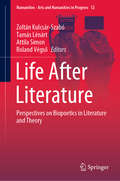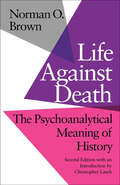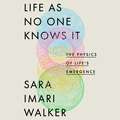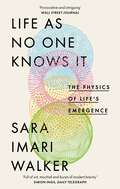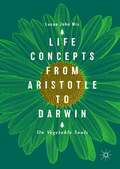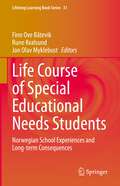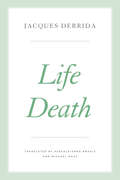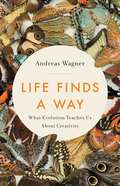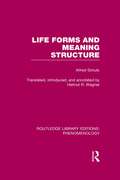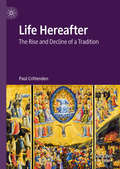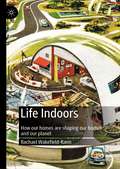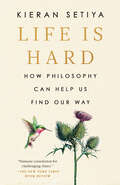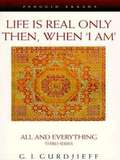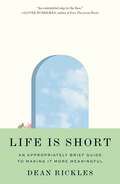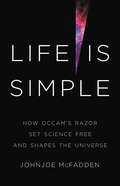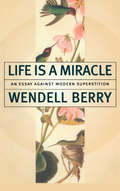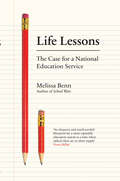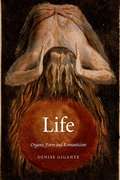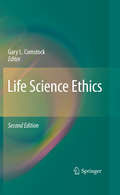- Table View
- List View
Liderazgo: Seis estudios sobre estrategia mundial
by Henry KissingerHenry Kissinger analiza cómo seis líderes extraordinarios, a los que conoció de cerca, dieron forma a sus países y al mundo que hoy conocemos. «Pretende ser un manual para los líderes de hoy y de mañana».The New Statesman Henry Kissinger, uno de los principales estrategas políticos del siglo xx, analiza en este nuevo libro los perfiles de seis de los líderes mundiales más fascinantes e influyentesdel pasado reciente: Konrad Adenauer, Charles de Gaulle, Richard Nixon, Anwar Sadat, Lee Kuan Yew y Margaret Thatcher. Todos ellos se formaron en un periodo en el que las instituciones establecidas se derrumbaban en Europa, las estructuras coloniales daban paso a estados independientes en Asia y África y hubo que crear un nuevo orden internacional a partir de los vestigios del anterior.Kissinger repasa el camino de De Gaulle para reconstruir la Francia postimperial, la rehabilitación llevada a cabo por Adenauer de una Alemania devastada por la guerra o el éxito del experimento de la pequeña ciudad Estado de Lee Kuan Yew en Singapur. El análisis de estos procesos sirve para mostrar las estrategias de gobierno de unos líderes que, impulsados por un alto sentido de Estado, se propusieron posicionar a sus respectivos países en el centro del tablero político mundial.La perspectiva del autor no tiene parangón: es la de un historiador de primer orden que conoció y estuvo implicado en los acontecimientos que se relatan. La experiencia como alto representante público, el conocimiento personal de los protagonistas y la carrera política de Kissinger enriquecen un libro que atestigua cómo la combinación del carácter de los personajes y las circunstancias de cada situación es lo que acaba dando forma a la historia. La crítica ha dicho:«Siempre vale la pena escuchar a este sorprendente testigo de la historia».Simon Heffer, The Telegraph Book of the Year «Un estudio vital del poder en acción».Publishers Weekly «Según Kissinger, sus seis protagonistas demuestran que el liderazgo transformador de las grandes personas es más importante que las fuerzas impersonales a la hora de forjar la historia».The Times De Orden mundial se dijo:«El mejor Kissinger, con su inimitable combinación de erudición».Hillary Clinton «Un fascinante e instructivo recorrido global por la búsqueda de la armonía. La clave del realismo en las relaciones internacionales de Kissinger, y el tema de este libro magistral, es que la humildad es importante no solo para las personas, sino también para los países, incluido Estados Unidos».Walter Isaacson «Un magnífico ensayo sobre el desorden político internacional».Lluis Bassets, Babelia
Lieh-tzu: A Taoist Guide to Practical Living
by Eva WongThe Lieh-tzu is a collection of stories and philosophical musings of a sage of the same name who lived around the fourth century BCE. Lieh-tzu's teachings range from the origin and purpose of life, the Taoist view of reality, and the nature of enlightenment to the training of the body and mind, communication, and the importance of personal freedom. This distinctive translation presents Lieh-tzu as a friendly, intimate companion speaking directly to the reader in a contemporary voice about matters relevant to our everyday lives.
Life
by William Brown Andrew FabianThe Making of the Modern Law: Legal Treatises, 1800-1926 includes over 20,000 analytical, theoretical and practical works on American and British Law. It includes the writings of major legal theorists, including Sir Edward Coke, Sir William Blackstone, James Fitzjames Stephen, Frederic William Maitland, John Marshall, Joseph Story, Oliver Wendell Holmes, Jr. and Roscoe Pound, among others. Legal Treatises includes casebooks, local practice manuals, form books, works for lay readers, pamphlets, letters, speeches and other works of the most influential writers of their time. It is of great value to researchers of domestic and international law, government and politics, legal history, business and economics, criminology and much more. ++++The below data was compiled from various identification fields in the bibliographic record of this title. This data is provided as an additional tool in helping to insure edition identification:++++Harvard Law School Libraryocm25079967New York : G. P. Putnam's Sons, 1890. iii, 165 p. ; 19 cm.
Life 101: Everything We Wish We Had Learned about Life in School-- But Didn't
by Peter McwilliamsTips on how to live a happier life
Life After Faith
by Mr Philip KitcherAlthough there is no shortage of recent books arguing against religion, few offer a positive alternative#151;how anyone might live a fulfilling life without the support of religious beliefs. This enlightening book fills the gap. Philip Kitcher constructs an original and persuasive secular perspective, one that answers human needs, recognizes the objectivity of values, and provides for the universal desire for meaningfulness. Kitcher thoughtfully and sensitively considers how secularism can respond to the worries and challenges that all people confront, including the issue of mortality. He investigates how secular lives compare with those of people who adopt religious doctrines as literal truth, as well as those who embrace less literalistic versions of religion. Whereas religious belief has been important in past times, Kitcher concludes that evolution away from religion is now essential. He envisions the successors to religious life, when the senses of identity and community traditionally fostered by religion will instead draw on a broader range of cultural items#151;those provided by poets, filmmakers, musicians, artists, scientists, and others. With clarity and deep insight, Kitcher reveals the power of secular humanism to encourage fulfilling human lives built on ethical truth.
Life After Literature: Perspectives on Biopoetics in Literature and Theory (Numanities - Arts and Humanities in Progress #12)
by Roland Végső Zoltán Kulcsár-Szabó Tamás Lénárt Attila SimonThis book offers innovative investigations of the concept of life in art and in theory. It features essays that explore biopoetics and look at how insights from the natural sciences shape research within the humanities. Since literature, works of art, and other cultural products decisively shape our ideas of what it means to be human, the contributors to this volume examine the question of what literature, literary and cultural criticism, and philosophy contribute to the distinctions (or non-distinctions) between human, animal, and vegetal existence. Coverage combines different methodological aspects and addresses a wide field of comparative literary studies. The essays consider the question of language (as a distinctive feature of human existence) in a number of different contexts, which range from Aristotle’s works, through several historical layers of the philosophical discourse on the origins of speech, to modern anthropology, and 20th century continental philosophy. In addition, the volume includes concrete case studies to the current post-humanism debate and provides literary, art historian, and philosophical perspectives on animal studies. The historical multiplicity of the various cultural representations of biological existence (be that human, animal, vegetal, or mixed) might serve as a productive foundation for discussing the nature and forms of literature’s critical contributions to our understanding of these fundamental categories. This volume opens up this subject to students and scholars of literature, art, philosophy, ethics, and cultural studies, and to anyone with a theoretical interest in the questions of life.
Life Against Death: The Psychoanalytical Meaning of History
by Norman O. BrownA shocking and extreme interpretation of culture, history, and the father of psychoanalysis. In Life Against Death: The Psychoanalytical Meaning of History, social philosopher Norman O. Brown radically analyzes and critiques the work of Sigmund Freud. Brown attempts to define a non-repressive civilization, draws parallels between psychoanalysis and the theology of Martin Luther, and also examines the revolutionary themes present in western religious thought, such as ideas found in the work of William Blake and Jakob Böhme.&“Life Against Death cannot fail to shock, if it is taken personally; for it is a book which does not aim at eventual reconciliation with the views of common sense. The highest praise one can give to Brown&’s book is that, apart from its all-important attempt to penetrate and further the insights of Freud, it is the first major attempt to formulate an eschatology of immanence in the seventy years since Nietzsche.&” —Susan Sontag&“One of the most interesting and valuable works of our time. Brown&’s contribution to moral thought . . . cannot be overestimated. His book is far-ranging, thoroughgoing, extreme, and shocking. It gives the best interpretation of Freud I know.&” —Lionel Trilling
Life As No One Knows It: The Physics of Life's Emergence
by Sara Imari WalkerWhat is life? This is among the most difficult open problems in science, right up there with the nature of consciousness and the existence of matter. All the definitions we have fall short. None help us understand how life originates or the full range of possibilities for what life on other planets might look like.In LIFE AS NO ONE KNOWS IT, physicist and astrobiologist Sara Imari Walker argues that solving the origin of life requires radical new thinking and an experimentally testable theory for what life is. This is an urgent issue for efforts to make life from scratch in laboratories here on Earth and missions searching for life on other planets.Walker proposes a new paradigm for understanding what physics encompasses and what we recognize as life. She invites us into a world of maverick scientists working without a map, seeking not just answers but better ways to formulate the biggest questions we have about the universe. The book culminates with the bold proposal of a new theory for identifying and classifying life, one that applies not just to biological life on Earth but to any instance of life in the universe. Rigorous, accessible, and vital, LIFE AS NO ONE KNOWS IT celebrates the mystery of life and the explanatory power of physics.
Life As No One Knows It: The Physics of Life's Emergence
by Sara Imari WalkerWhat is life? This is among the most difficult open problems in science, right up there with the nature of consciousness and the existence of matter. All the definitions we have fall short. None help us understand how life originates or the full range of possibilities for what life on other planets might look like.In LIFE AS NO ONE KNOWS IT, physicist and astrobiologist Sara Imari Walker argues that solving the origin of life requires radical new thinking and an experimentally testable theory for what life is. This is an urgent issue for efforts to make life from scratch in laboratories here on Earth and missions searching for life on other planets.Walker proposes a new paradigm for understanding what physics encompasses and what we recognize as life. She invites us into a world of maverick scientists working without a map, seeking not just answers but better ways to formulate the biggest questions we have about the universe. The book culminates with the bold proposal of a new theory for identifying and classifying life, one that applies not just to biological life on Earth but to any instance of life in the universe. Rigorous, accessible, and vital, LIFE AS NO ONE KNOWS IT celebrates the mystery of life and the explanatory power of physics.
Life Concepts from Aristotle to Darwin: On Vegetable Souls
by Lucas John MixThis book traces the history of life-concepts, with a focus on the vegetable souls of Aristotle, investigating how they were interpreted and eventually replaced by evolutionary biology. Philosophers have long struggled with the relationship between physics, physiology, and psychology, asking questions of organization, purpose, and agency. For two millennia, the vegetable soul, nutrition, and reproduction were commonly used to understand basic life and connect it to “higher” animal and vegetable life. Cartesian dualism and mechanism destroyed this bridge and left biology without an organizing principle until Darwin. Modern biology parallels Aristotelian vegetable life-concepts, but remains incompatible with the animal, rational, subjective, and spiritual life-concepts that developed through the centuries. Recent discoveries call for a second look at Aristotle’s ideas – though not their medieval descendants. Life remains an active, chemical process whose cause, identity, and purpose is self-perpetuation.
Life Course of Special Educational Needs Students: Norwegian School Experiences and Long-term Consequences (Lifelong Learning Book Series #31)
by Finn Ove Båtevik Rune Kvalsund Jon Olav MyklebustThis book discusses the contested issue of how different kinds of special educational support in Norway, such as placement in special classes or use of teacher assistants, prepare Special Educational Need (SEN) students for further education and adult life. This is done by following former students categorized as having special educational needs for twenty years, from the start of the upper secondary school until their mid-thirties.Different choices and the adjustments and active adaptations young people make throughout their lives is a recurring theme, focusing on education, work, family, mental health, and social networks. The authors in this volume analyze and critically discuss topics around competence attainment in upper secondary school and higher education, employment, public support in adult life, mental health, social exclusion and isolation, and data-mediated networks. It concludes how the experiences from school time have affected the adaptation in later adulthood, and provides an answer to whether the assistive measures have benefits. What are the consequences in the short and long run? A central explanatory tension is between disabled students and disabling schools. We trace consequences – possibly non-intended – for the former SEN students due to the stigmatization effect of receiving special educational help in a vulnerable phase of life. The authors interpret results within a framework of life course approaches and disability theories. The perspectives introduced in the book are of interest for researchers and academics in the social sciences, such as sociology, special education, and social work.
Life Death (The Seminars of Jacques Derrida)
by Jacques DerridaOne of Jacques Derrida’s richest and most provocative works, Life Death challenges and deconstructs one of the most deeply rooted dichotomies of Western thought: life and death. Here Derrida rethinks the traditional philosophical understanding of the relationship between life and death, undertaking multidisciplinary analyses of a range of topics, including philosophy, linguistics, and the life sciences. In seeking to understand the relationship between life and death, he engages in close readings of Freudian psychoanalysis, the philosophy of Nietzsche and Heidegger, French geneticist François Jacob, and epistemologist Georges Canguilhem. Derrida gave his “Life Death” seminar over fourteen sessions between 1975 and 1976 at the École normale supérieure in Paris as part of the preparation for students studying for the agrégation, a notoriously competitive qualifying exam. The theme for the exam that year was “Life and Death,” but Derrida made a critical modification to the title by dropping the coordinating conjunction. The resulting title of Life Death poses a philosophical question about the close relationship between life and death. Derrida argues that death must be considered neither as the opposite of life nor as the truth or fulfillment of it, but rather as that which both limits life and makes it possible. Through these captivating sessions, Derrida thus not only questions traditional understandings of the relationship between life and death, but also ultimately develops a new way of thinking about what he calls “life death.”
Life Death (The Seminars of Jacques Derrida)
by Jacques DerridaOne of Jacques Derrida’s richest and most provocative works, Life Death challenges and deconstructs one of the most deeply rooted dichotomies of Western thought: life and death. Here Derrida rethinks the traditional philosophical understanding of the relationship between life and death, undertaking multidisciplinary analyses of a range of topics, including philosophy, linguistics, and the life sciences. In seeking to understand the relationship between life and death, he engages in close readings of Freudian psychoanalysis, the philosophy of Nietzsche and Heidegger, French geneticist François Jacob, and epistemologist Georges Canguilhem. Derrida gave his “Life Death” seminar over fourteen sessions between 1975 and 1976 at the École normale supérieure in Paris as part of the preparation for students studying for the agrégation, a notoriously competitive qualifying exam. The theme for the exam that year was “Life and Death,” but Derrida made a critical modification to the title by dropping the coordinating conjunction. The resulting title of Life Death poses a philosophical question about the close relationship between life and death. Derrida argues that death must be considered neither as the opposite of life nor as the truth or fulfillment of it, but rather as that which both limits life and makes it possible. Through these captivating sessions, Derrida thus not only questions traditional understandings of the relationship between life and death, but also ultimately develops a new way of thinking about what he calls “life death.”
Life Finds a Way: What Evolution Teaches Us About Creativity
by Andreas WagnerHow the principles of biological innovation can help us overcome creative challenges in art, business, and scienceIn Life Finds a Way, biologist Andreas Wagner reveals the deep symmetry between innovation in biological evolution and human cultural creativity. Rarely is either a linear climb to perfection--instead, "progress" is typically marked by a sequence of peaks, plateaus, and pitfalls. For instance, in Picasso's forty-some iterations of Guernica, we see the same combination of small steps, incessant reshuffling, and large, almost reckless, leaps that characterize the way evolution transformed a dinosaur's grasping claw into a condor's soaring wing. By understanding these principles, we can also better realize our own creative potential to find new solutions to adversity.Ultimately, Life Finds a Way offers a new framework for the nature of creativity, enabling us to better adapt, grow, and change in art, business, or science--that is, in life.
Life Forms and Meaning Structure (Routledge Library Editions: Phenomenology)
by Alfred SchutzThis volume contains a translation of four early manuscripts by Alfred Schutz, unpublished at the time, written between 1924 and 1928. The publication of these four essays adds much to our knowledge and appreciation of the wide range of Schutz’s phenomenological and sociological interests. Originally published in 1987. The essays consist of: a challenging presentation of a phenomenology of cognition and a treatment of Bergson’s conceptions of images, duration, space time and memory; a discussion of the meanings connected with the grammatical forms of language in general; a consideration of the relation between meaning-contents and literary forms in poetry, literary prose narration and dramatic presentation; and an examination of resemblances and differences in the inner forms and characteristics of the major theatrical art forms.
Life Hereafter: The Rise and Decline of a Tradition
by Paul CrittendenIn this book, Paul Crittenden offers a critical guide to the problematic origins of biblical teaching about the afterlife and the way in which it was subsequently developed by Church authorities and theologians—Origen, Augustine, and Thomas Aquinas in particular. In the post–Reformation era the focus falls on the challenges set by modern secularism. The tradition encompasses a body of interconnected themes: an apocalyptic war in which the Kingdom of God triumphs over Satan’s powers of darkness; salvation in Christ; the immortality of the soul; and finally the resurrection of the dead and the last judgment, ratifying an afterlife of eternal bliss for the morally good and punishment in hell for wrongdoers. The critique questions these beliefs on evidential, ethical, and philosophical grounds. The argument overall is that what lies beyond death is beyond knowledge. The one fundamental truth that can be distilled from the once compelling body of Christian eschatological belief—for believers and unbelievers alike—is the importance of living ethically.
Life Indoors: How our homes are shaping our bodies and our planet
by Rachael Wakefield-RannIn this timely and expansive book, Wakefield-Rann investigates how emerging disease ecologies are undermining definitions of health and immunity that have persisted since the 19th century, and had a formative influence over the design of not only homes, but entire cities. This wide-ranging account traces the links between the history of medicine, modernist design and architecture, the rise of inflammatory disease, the microbiomes of buildings and humans, antimicrobial resistance, and novel chemical pollutants, to show how indoor environments have made us as we have made them. In highlighting the processes that have been missed in designing perfectly controlled interior habitats, Life Indoors shows the limitations of dominant practices, classifications and philosophies to apprehend current indoor pathogen ecologies.
Life Is Hard: How Philosophy Can Help Us Find Our Way
by Kieran SetiyaA philosophical guide to facing life&’s inevitable hardships. There is no cure for the human condition: life is hard. But Kieran Setiya believes philosophy can help. He offers us a map for navigating rough terrain, from personal trauma to the injustice and absurdity of the world. In this profound and personal book, Setiya shows how the tools of philosophy can help us find our way. Drawing on ancient and modern philosophy as well as fiction, history, memoir, film, comedy, social science, and stories from Setiya&’s own experience, Life Is Hard is a book for this moment—a work of solace and compassion.Warm, accessible, and good-humored, this book is about making the best of a bad lot. It offers guidance for coping with pain and making new friends, for grieving the lost and failing with grace, for confronting injustice and searching for meaning in life. Countering pop psychologists and online influencers who admonish us to &“find our bliss&” and &“live our best lives,&” Setiya acknowledges that the best is often out of reach. Instead, he asks how we can weather life&’s adversities, finding hope and living well when life is hard.
Life Is Real Only Then, When I Am: All and Everything Third Series
by G. I. GurdjieffBegun in 1934, this final volume of Gurdjieff's trilogy, All and Everything, is a primary source for Gurdjieff's ideas, methods, and biography. Gurdjieff offers guidance to his "community of seekers," through a selection of talks given in 1930, autobiographical material crucial to understanding his ideas, and the incomplete essay "The Outer and Inner World of Man. " Available for the first time in paperback, this is the ultimate piece of Gurdjieff's work that his numerous followers have been waiting for. .
Life Is Short: An Appropriately Brief Guide to Making It More Meaningful
by Dean RicklesWhy life’s shortness—more than anything else—is what makes it meaningfulDeath might seem to render pointless all our attempts to create a meaningful life. Doesn’t meaning require transcending death through an afterlife or in some other way? On the contrary, Dean Rickles argues, life without death would be like playing tennis without a net. Only constraints—and death is the ultimate constraint—make our actions meaningful. In Life Is Short, Rickles explains why the finiteness and shortness of life is the essence of its meaning—and how this insight is the key to making the most of the time we do have.Life Is Short explores how death limits our options and forces us to make choices that forge a life and give the world meaning. But people often live in a state of indecision, in a misguided attempt to keep their options open. This provisional way of living—always looking elsewhere, to the future, to other people, to other ways of being, and never committing to what one has or, alternatively, putting in the time and energy to achieve what one wants—is a big mistake, and Life Is Short tells readers how to avoid this trap.By reminding us how extraordinary it is that we have any time to live at all, Life Is Short challenges us to rethink what gives life meaning and how to make the most of it.
Life Is Simple: How Occam's Razor Set Science Free and Shapes the Universe
by Johnjoe McFadden"In short, Life Is Simple is enthralling."--Michael Blastland, ProspectA biologist argues that simplicity is the guiding principle of the universe Centuries ago, the principle of Ockham&’s razor changed our world by showing simpler answers to be preferable and more often true. In Life Is Simple, scientist Johnjoe McFadden traces centuries of discoveries, taking us from a geocentric cosmos to quantum mechanics and DNA, arguing that simplicity has revealed profound answers to the greatest mysteries. This is no coincidence. From the laws that keep a ball in motion to those that govern evolution, simplicity, he claims, has shaped the universe itself. And in McFadden&’s view, life could only have emerged by embracing maximal simplicity, making the fundamental law of the universe a cosmic form of natural selection that favors survival of the simplest. Recasting both the history of science and our universe&’s origins, McFadden transforms our understanding of ourselves and our world.
Life Is a Miracle: An Essay Against Modern Superstition
by Wendell Berry[A] scathing assessment . . . Berry shows that Wilson's much-celebrated, controversial pleas in Consilience to unify all branches of knowledge is nothing more than a fatuous subordination of religion, art, and everything else that is good to science . . . Berry is one of the most perceptive critics of American society writing today. The Washington Post€œI am tempted to say he understands [Consilience] better than Wilson himself . . . A new emancipation proclamation in which he speaks again and again about how to defy the tyranny of scientific materialism.The Christian Science MonitorIn Life Is a Miracle, the devotion of science to the quantitative and reductionist world is measured against the mysterious, qualitative suggestions of religion and art. Berry sees life as the collision of these separate forces, but without all three in the mix we are left at sea in the world.
Life Lessons: The Case for a National Education Service
by Melissa BennA radical agenda to make our education system fit for the twenty-first centuryOur education system has been damaged by politicians who have arrogantly imposed a regime of market-driven reforms. It is time to reframe education as an essential public good, one arising from a hunger to find more engaging ways to learn and the powerful imperative to make our society genuinely equal.In this timely and provocative essay, Melissa Benn argues for a National Education Service. Like the NHS, the NES would provide the framework for a life-long entitlement to education: from early-years provision to apprenticeships, universities and adult education. It should be free at the point of delivery. It should nurture teachers and scholarship, moving beyond an obsession with exam results to create fully rounded, questioning citizens. Its eventual aim should be an integrated, comprehensive system available to all.
Life Organic Form And Romanticism
by Denise GiganteWhat makes something alive? Or, more to the point, what is life? The question is as old as the ages and has not been (and may never be) resolved. Life springs from life, and liveliness motivates matter to act the way it does. Yet vitality in its very unpredictability often appears as a threat. In this intellectually stimulating work, Denise Gigante looks at how major writers of the Romantic period strove to produce living forms of art on an analogy with biological form, often finding themselves face to face with a power known as monstrous. The poets Christopher Smart, William Blake, Percy Bysshe Shelley, and John Keats were all immersed in a culture obsessed with scientific ideas about vital power and its generation, and they broke with poetic convention in imagining new forms of "life. ” In Life: Organic Form and Romanticism, Gigante offers a way to read ostensibly difficult poetry and reflects on the natural-philosophical idea of organic form and the discipline of literary studies.
Life Science Ethics
by Gary L. ComstockDoes nature have intrinsic value? Should we be doing more to save wilderness and ocean ecosystems? What are our duties to future generations of humans? Do animals have rights? This revised edition of "Life Science Ethics" introduces these questions using narrative case studies on genetically modified foods, use of animals in research, nanotechnology, and global climate change, and then explores them in detail using essays written by nationally-recognized experts in the ethics field. Part I introduces ethics, the relationship of religion to ethics, how we assess ethical arguments, and a method ethicists use to reason about ethical theories. Part II demonstrates the relevance of ethical reasoning to the environment, land, farms, food, biotechnology, genetically modified foods, animals in agriculture and research, climate change, and nanotechnology. Part III presents case studies for the topics found in Part II.
